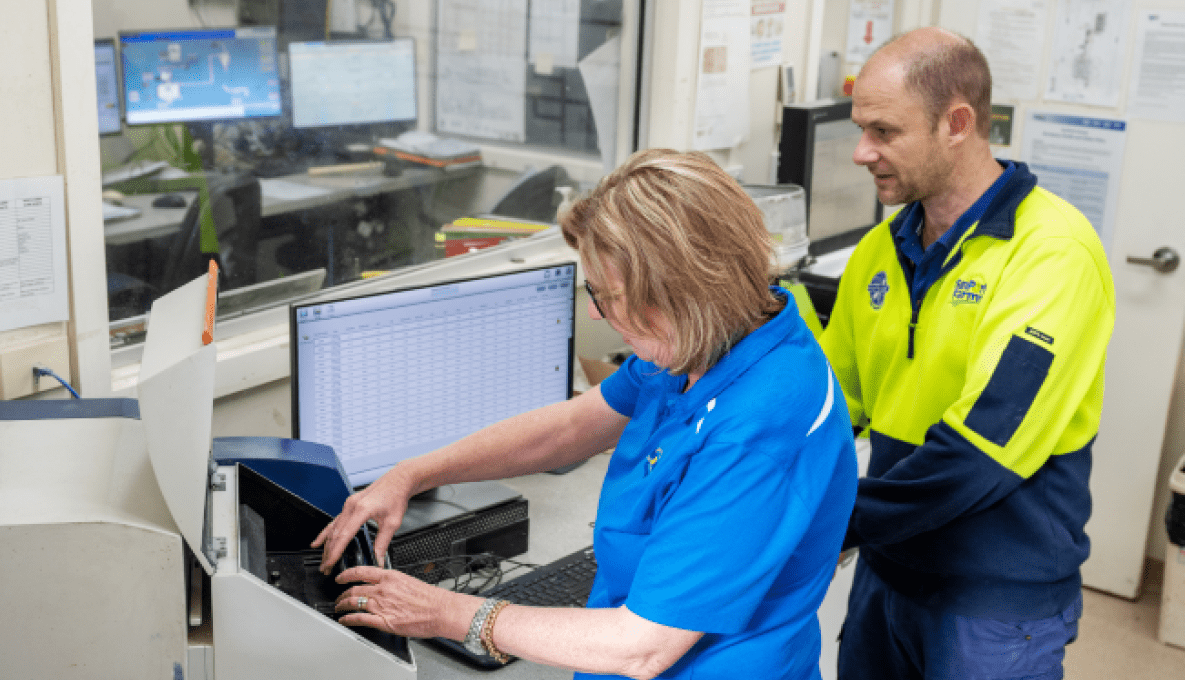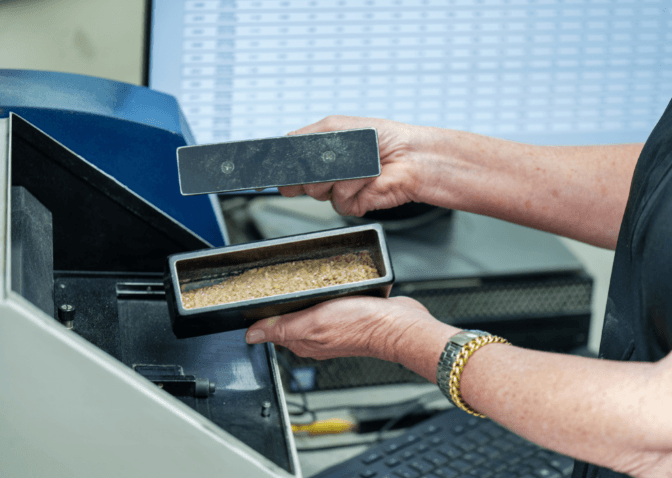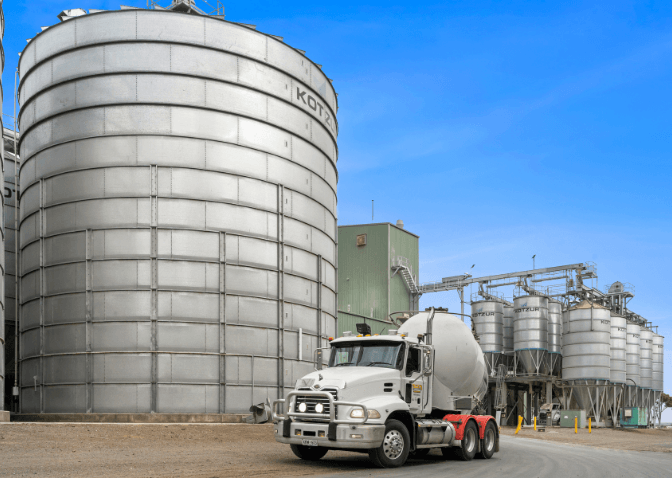-contain-250x120.jpg)
Australasian pork industry calls for innovative agritech with commercial potential
An open call, dubbed the Shark Tank for the pork industry, needs innovators with cutting-edge agritech solutions to bring home the bacon for the Australasian pork supply chain. So what does it take to impress the commercialisation panel at Australasian Pork Research Institute Ltd?

When it comes to identifying and developing commercially viable products, the Australasian Pork Research Institute Ltd (APRIL) has good runs on the board.
From world-first grain scanning technology transforming nutritional planning for optimal pig growth, to an innovative animal welfare product that provides enrichment while reducing harmful behaviours among sows, APRIL’s pipeline of commercial products has an impressive pedigree.
Now the organisation is on the hunt for the next big things in agritech, issuing an open call for commercialisation proposals from innovators whose ideas will benefit the Australasian pork industry.
Casting a wide net for solutions
APRIL is an independent, member-based organisation that invests in research and development, education and training, and commercialisation activities that ensure the sustainability of Australasian pork production, and generate optimal returns for the industry.
CEO of APRIL, Professor John Pluske said businesses and organisations from across the industry are looking for farm technologies that can have a cost-effective application. But the solutions to support the industry don’t always come from those already engaged in the supply chain.
RELATED: Consumer trends and sustainable global supply chains
Related organisations
-contain-250x120.jpg)
-crop-672x478.png)
“Often you get ideas from people that have little to no knowledge of the pork industry, but have a tool or an application that has potential interest for us,” said John.
“We have a commercialisation advisory panel, which is basically like a Shark Tank, so if anyone's got an idea with a potential application, they can pitch that to the panel for consideration.
“By trying to broadcast the net with an open call for commercialisation, we're trying to capture a broader range of ideas with potential application for the pork industry.”
RELATED: NorVicFoods calls agrifood businesses to help solve industry-wide challenges
Projects are assessed in terms of return on investment, with APRIL co-investing with research and commercial entities to bring the product to market. Applicants are required to provide 20 per cent of the total cash project cost, which APRIL Commercialisation and Research Impact Manager Charlie Rikard-Bell said helps to identify the more serious parties.
“It ensures the applicant thinks about partners to commercialise or support the technology. In other words, who's serious about taking a proposal forward,” said Charlie.
“We also recognise that entities who are interested in putting money into the project may also be future commercial partners.”
John added, "Holding an open call for projects through AgriFutures growAG. has been wonderful for us in terms of exposure for those possible commercial opportunities. Charlie has already had calls from people who are potentially interested."
Key areas for agritech investment
While APRIL is open to considering any potential ideas that could benefit the industry, the organisation’s Strategic Plan provides guidance on the transformational projects and industry priority projects at the centrepiece of their investment strategy over the past three years.
Other key areas of interest include animal health and nutrition, animal welfare and technologies that help reduce the cost of production.
“We are also interested in real time assessment and the Internet of Things,” said Charlie.
“Sensor technology is changing quickly and covers almost every area of pork production from measuring feed waste, animal movement and behaviour to meat quality measures.”
RELATED: Rubens Technologies takes real time fruit assessment to the next level

Products on the market offer runs on the board
APRIL has plenty of runs of the board when it comes to successfully commercialising products, as well as a strong pipeline of products.
This includes what Charlie considers the backbone of commercial income for APRIL – AusScan Online. A world first in cereal grain evaluation, AusScan Online uses unique near infrared reflectance (NIR) calibrations to measure the digestible energy in cereal grains for different livestock species including pigs, broiler chickens and feedlot cattle. It also measures reactive lysine in soybean and canola meals. This information allows nutritionists to formulate feeds that optimise the animal’s growth potential.
RELATED: Aquatic AI’s high-tech marron system set to achieve superior growth rates
Charlie said AusScan Online is one of the most impactful innovations in animal nutrition in the last 30 years.
It also provides benefits when it comes to the cost of production, with feed making up one of the largest input costs for pig, poultry and grain fed cattle production.
“Energy in cereal grains is measured in megajoules per kilogram. If there is a one megajoule per kilogram difference in two plots of grain, that's the equivalent of $25 to $30 a tonne if the grain is priced at $400/tonne,” said Charlie.
“In other words, if the energy of the grain is out by 1MJ/Kg in a formulated diet it could cost you $25 to $30 per tonne.”
AusScan Online is gaining momentum globally, with scan numbers increasing from 2,200 in the 2015 launch year to greater than 44,000 scans per annum currently.
The Ridley Enrich Sow Block is another commercialisation success story for APRIL. The specially formulated lick block offers an innovative form of enrichment that reduces aggression and abnormal behaviours when sows are mixed at weaning, can decrease hunger and boredom and provides an opportunity for the sow to express natural foraging behaviours.
APRIL holds a patent for this technology in Australia and the USA, with a further patent pending in Europe. Ridley Corporation has a license agreement with APRIL for the distribution of the enrichment block nationally and internationally.
RELATED: Turning waste into water: The pork industry’s transformative tech
“One of the attractive things about this technology is its suitability for larger international markets as it satisfies enrichment requirements that enhance sow welfare in many different global markets,” said Charlie.
“The product is successful here in Australia, as some supermarkets now request that in the production of your product, the breeding animal has a form of enrichment in its breeding cycle. The enrichment block satisfies these requirements by being manipulable, chewable and rootable.
“There are similar enrichment requirements in other jurisdictions around the globe, so we see opportunity in marketing the product overseas.”

Membership base offers key advantage
APRIL has a diverse membership base that includes Australian Pork Limited and the New Zealand Pork Industry Board, as well as research institutes, universities, an animal health group, a national feed milling group and members involved in supplying products and services to the pork industry.
“The benefit of having such a range of members is what they bring to the table with respect to R&D investment schemes and plans, and ultimately the benefits that flow into the overall R&D, education and training, commercialisation efforts and outcomes for the pork industry,” said John.
According to Charlie, APRIL’s wide membership base offers an advantage for those looking to partner with the organisation.
“People who come to commercialise products with us have an opportunity to have their idea, if it's successful, evaluated by members of the industry,” he said.
“If you are seeking to commercialise a product, technology or service through APRIL, industry members will be aware of the proposal, from approval to final report. This is attractive for APRIL members as they preview future technology, but also attractive to the innovator as products will have been scrutinised by industry prior to market.”
Learn more about APRIL’s call for commercialisation projects here and AusScan licensing opportunity here.
-crop-850x675.png)
Looking for engagement?
Showcase your commercialisation opportunity today.
Talk to our team to discuss how growAG. can connect your innovation to industry.
Have questions? Find answers to our most frequently asked questions on research projects, commercial opportunities, organisations and more.
